
China
20:10, 20-Sep-2018
Xihaigu, the poorest prefecture in China is eradicating poverty
Updated
20:01, 23-Sep-2018
CGTN
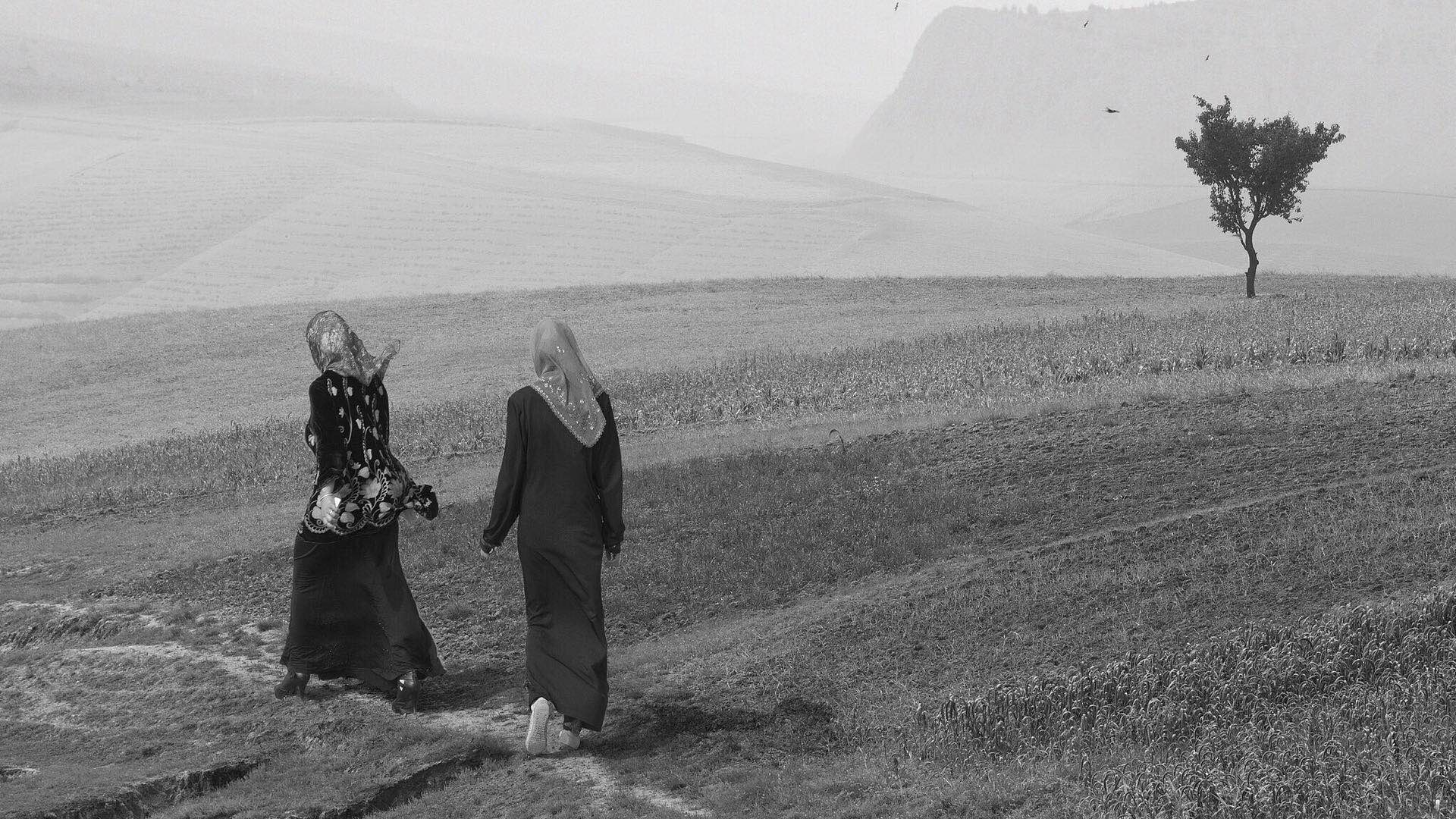
"Ningxia", which means "quiet summer" in Chinese, is a popular song by famous Malaysian singer Fish Leong, and it has over four million views on YouTube. Many think, albeit mistakenly, that the song is about longing for a lost love. In fact, it's about the Ningxia Hui Autonomous Region in northwest China, more specifically, about a remote area in the south called Xihaigu.
Music producer Li Zhengfan made the song after a visit to Wangmin Middle School in Xihaigu in 2002. "This place is so poor," said Li, recalling his first impression. "The children who live here can only see the blue sky, green trees and the loess."
But Li was deeply touched by the kindness of the students he met and wrote "Ningxia" to express his memories of the quiet summers in Xihaigu.
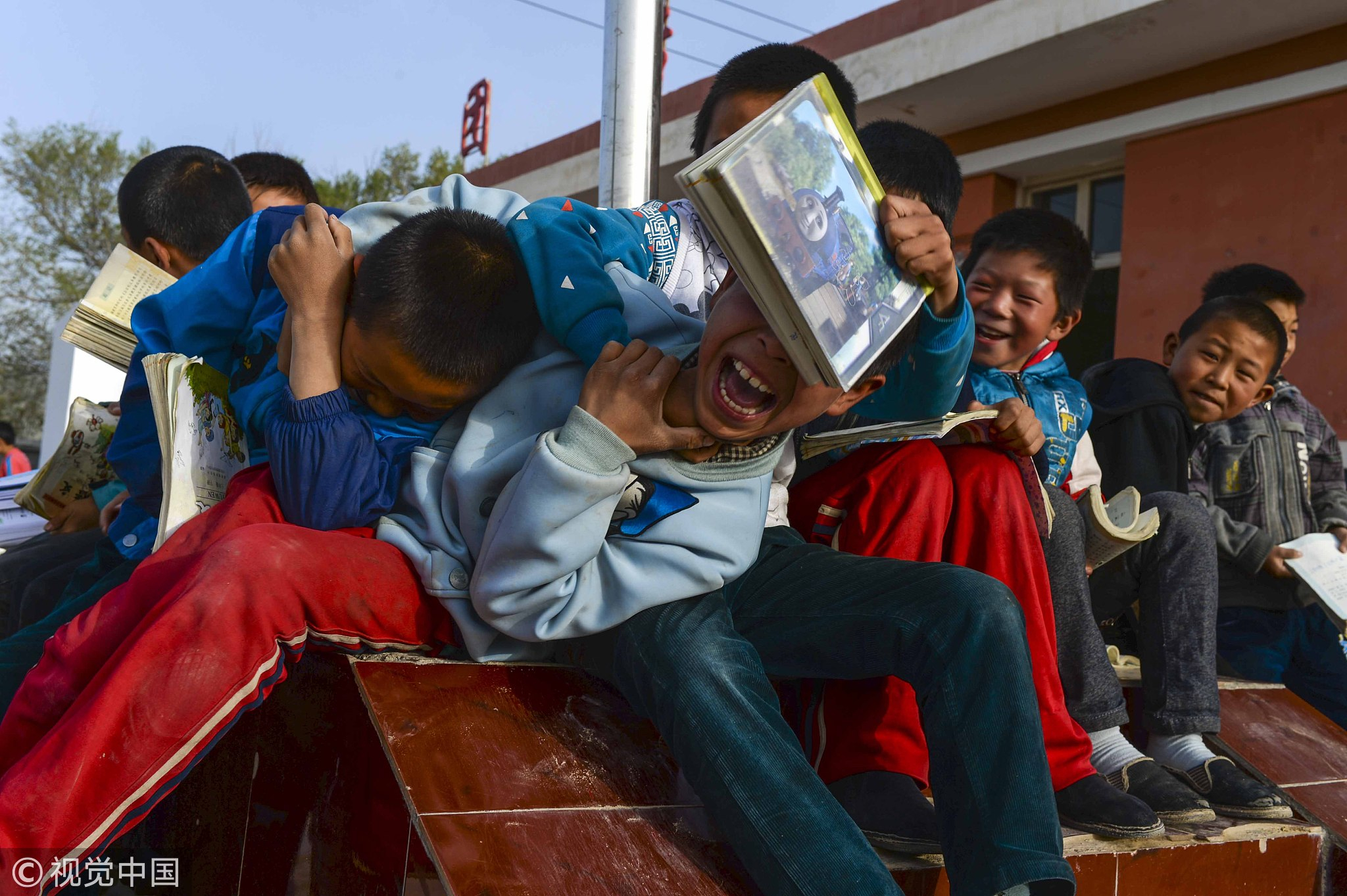
Li Zhengfan's memories can be seen in his song, "Ningxia." /VCG Photo
Li Zhengfan's memories can be seen in his song, "Ningxia." /VCG Photo
Xihaigu Prefecture in the Ningxia Hui Autonomous Region is one of China's most impoverished areas. In 1972, it was classified by the United Nations as "one of the least suitable areas for human habitation in the world." In 2000, the Chinese government launched a 17-year poverty alleviation campaign.
Xihaigu is not short on history. It is the birthplace of the Xixia civilization and an important stop along the ancient Silk Road. The area also offers an abundance of culture. Islamic symbols are aplenty, and its natural landscapes from grasslands as far as the eye can see to vast stretches of desert are every traveler's dream.
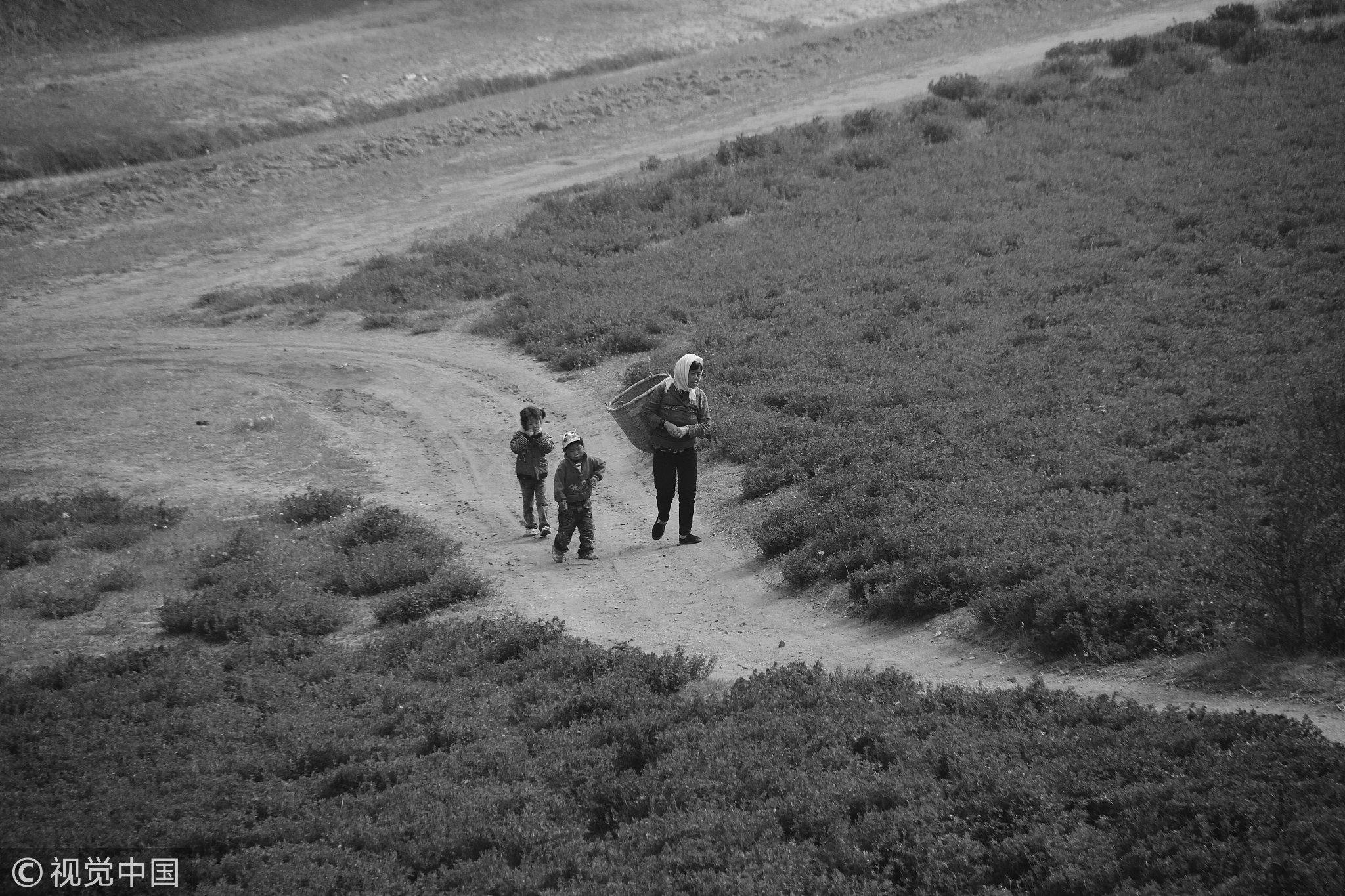
In 1972, Xihaigu was classified by the United Nations as “one of the least suitable areas for human habitation in the world.” /VCG Photo
In 1972, Xihaigu was classified by the United Nations as “one of the least suitable areas for human habitation in the world.” /VCG Photo
But for all its cultural and scenic richness, Xihaigu suffers from a crippling water shortage.
The annual precipitation there is between 200 and 700 mm, making it the driest area nationwide and hindering its chances of shaking off poverty.
Ma Lina, 13, lives with her family in Xiji County in Xihaigu. For them, the scarcity of rain is becoming the new normal. From January to July 2016, some locations saw a decrease in rainfall between 6.9 percent and 17.5 percent than the annual average, according to the Regional Meteorological Administration.
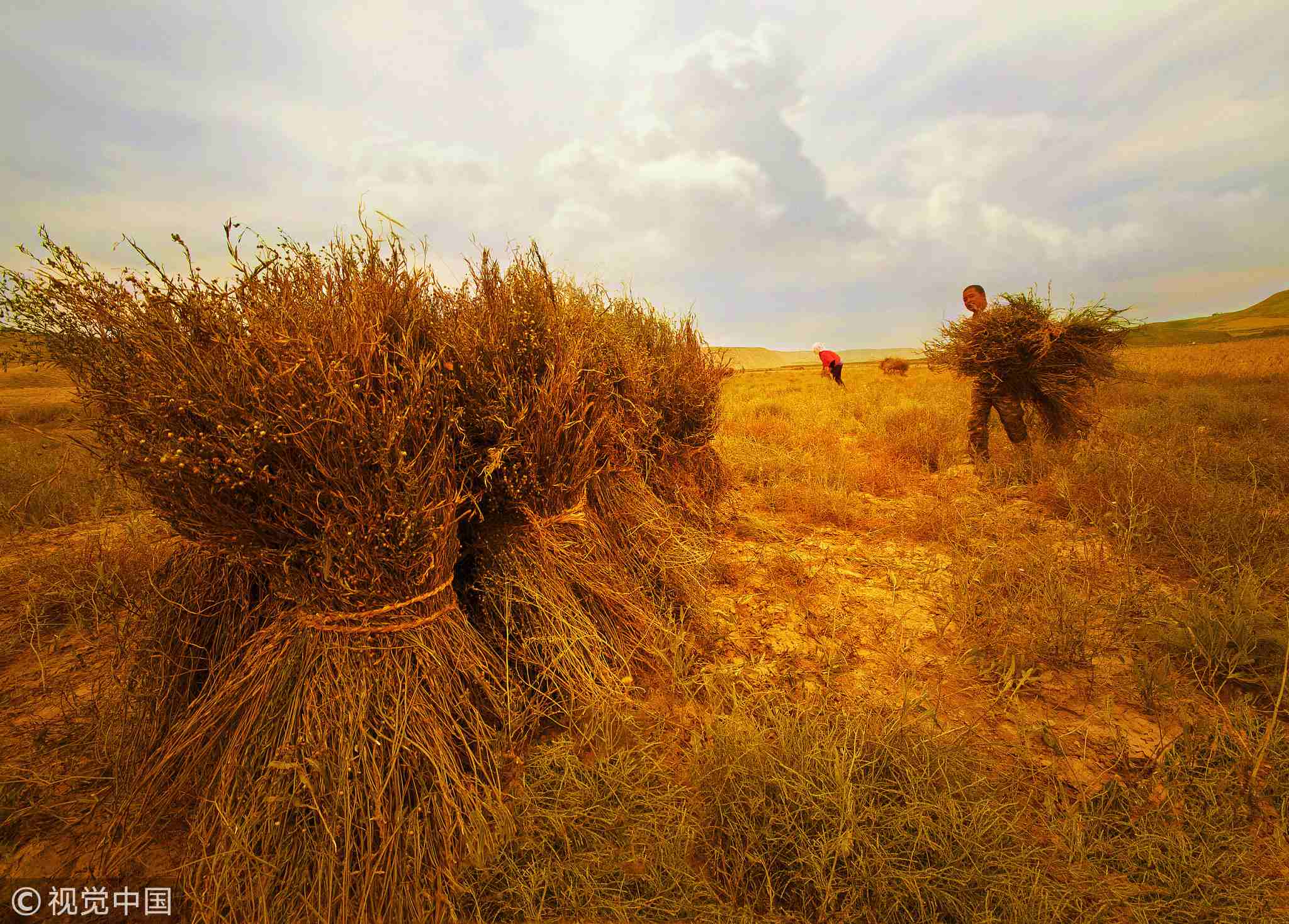
Most of those residing in Xihaigu work the land for a living. /VCG Photo
Most of those residing in Xihaigu work the land for a living. /VCG Photo
In August 2018, temperatures soared to record highs while precipitation levels fell to its lowest, bringing about drought. The unusual weather spelled trouble for Ma's family, whose potato yields dropped by 10 percent from a year earlier.
Most of those residing in Xihaigu work the land for a living. Potatoes and wheat are their crops of choice.
Ma's family uses its 10-acre farmland to grow potatoes, which brings them around 10,000 yuan (around 1,400 US dollars) in annual revenue. But water shortages have hit their output hard and caused the family to lose money, plunging them deeper into poverty.
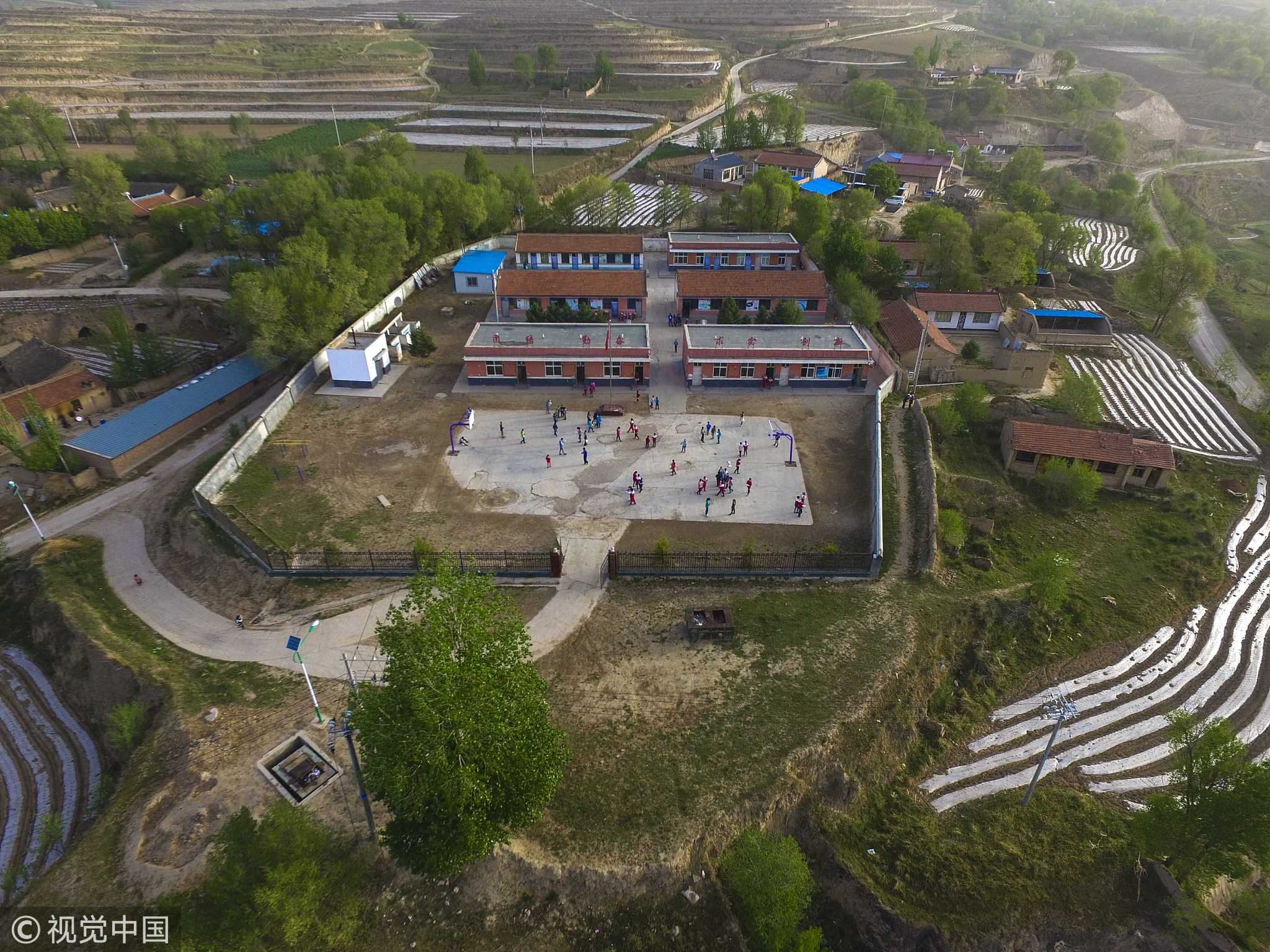
Poverty rates fell from 38.4 percent to 8.4 percent between 2011 and 2017, and the number of people below poverty line has decreased from 501,000 to 95,500, according to Xinhua. /VCG Photo
Poverty rates fell from 38.4 percent to 8.4 percent between 2011 and 2017, and the number of people below poverty line has decreased from 501,000 to 95,500, according to Xinhua. /VCG Photo
Lifting people in Xihaigu from poverty has been dependent on efforts to irrigate their lands and provide them with water.
In 1983, the Chinese government launched a national campaign to alleviate poverty, which saw more than five billion yuan (730 million US dollars) in investment to develop Xihaigu, according to China Internet Information Center.
The funds helped build 200 water projects, turning 46,000 hectares of arid land into irrigated fields and connecting counties with highway networks.
Plastic film mulching, which helps with moisture conservation, and switching to new crops have helped generate more yields and cash. Traditional farming has been replaced with more efficient and productive modern agricultural systems.
More farmers are gradually shifting to non-agricultural industries to increase their income.
The government has established core industries by leveraging local resources to preserve fruits, animal byproducts, starch and flax in Xihaigu. The local gross industrial output value has reached one billion yuan (146 million US dollars) last year.

SITEMAP
Copyright © 2018 CGTN. Beijing ICP prepared NO.16065310-3
Copyright © 2018 CGTN. Beijing ICP prepared NO.16065310-3